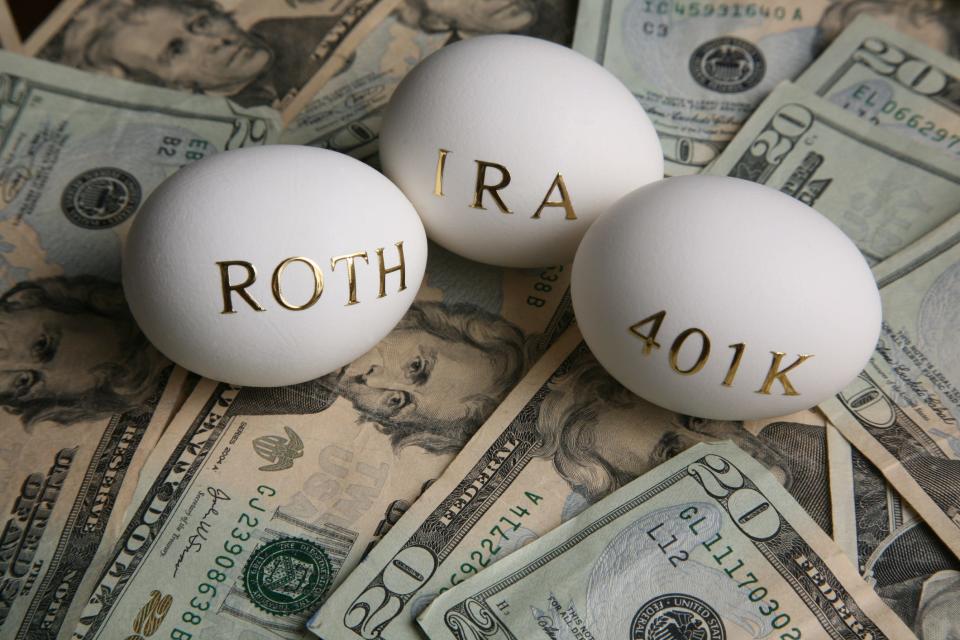When are Roth conversions a bad idea?
To encourage us to save for retirement, Congress has put some incentives in the tax code that give us the option to save taxes now, while we put money aside for retirement, or save taxes later when funds are withdrawn from retirement accounts. Traditional IRA contributions allow for an up-front tax break, but all withdrawals from these accounts count as taxable income.

Roth IRA accounts, alternatively, are funded with after-tax dollars but withdrawals from Roth IRAs are tax-free if certain holding period requirements are met. The prospect of tax-free retirement income is obviously very attractive, but it does not mean that everyone should move their traditional IRA balances into Roth accounts. Here are some situations in which Roth conversions are not the best financial planning tool.

The primary driver for determining whether a traditional IRA or Roth is best is what an individual’s tax bracket will be when contributions or conversions are being done versus what their tax bracket will be in retirement. Roth accounts make great sense when a retiree’s tax 1/ bracket will be higher than it was when they were setting the money aside for retirement. Retirement savings can stretch farther when taxes are paid today at a known rate in exchange for future tax-free withdrawals when that rate will be the same or higher.
Of course, this logic works in reverse. Roth conversions are not likely to make financial sense for taxpayers in their peak earning years who expect to need only a fraction of their current income for retirement living expenses. Those who have built up substantial traditional IRA and 401(k) balances, however, should factor future Required Minimum Distributions into their tax planning. These mandatory withdrawals could push the retiree’s tax bracket much higher than it would be if they only needed to cover living expenses. Taxpayers considering conversions within two years of reaching Medicare age (65) should also keep in mind that their Medicare premiums may be increased if a Roth conversion puts them over the Income Related Monthly Adjustment Amount threshold.
Another factor working against a Roth conversion is when funds are not available outside the traditional IRA to pay the tax on the conversion. When using IRA funds to pay the tax, fewer dollars actually land in the Roth IRA and the funds withdrawn to pay the conversion tax may be subject to the 10% early withdrawal penalty if the conversion is done before reaching age 59 ½.
Roth conversions are also not ideal if funds from the Roth account will be needed within 5 years. Roth conversions are subject to a five-year holding period before funds can be withdrawn tax and penalty free. Converted funds have already been taxed, but to prevent younger taxpayers from executing Roth conversions to avoid the IRA 10% early withdrawal penalty, withdrawals of Roth conversion amounts are subject to this 10% penalty (but not regular income tax) if withdrawn before the five-year holding period is met.
Some retirees may find themselves fortunate enough to not need all their IRA savings over their lifetime. Consequently, their financial plan may include leaving assets to children or grandchildren, or charity. These legacy goals also must factor into the Roth conversion decision. When leaving assets to family, the beneficiary’s likely tax rate should be considered. If beneficiaries are in relatively low tax brackets, it does not make sense to convert IRA assets to Roth since withdrawals can be taken at a lower tax rate by the future beneficiaries. If funds are earmarked for charity, conversions make no sense because the charity will be able to withdraw funds from a traditional IRA tax-free.
The possibility of future long-term-care expenses should also factor into the Roth conversion math. These costs can be substantial and are considered qualified expenses for the medical itemized deduction. This deduction is only valuable to the extent that a taxpayer has taxable income. So, if a retiree had all their money in a Roth IRA, this deduction would likely be lost.
The bottom line here is that Roth conversions should be considered carefully, in the context of a long-term financial plan that includes tax projections and careful consideration of legacy and charitable goals. While having all of one’s nest-egg in Roth IRAs in retirement may sound ideal, this may not make financial sense as the tax costs to achieving this may outweigh the benefits.
David T. Mayes is a Certified Financial Planner professional and IRS Enrolled Three Bearings Fiduciary Advisors, Inc., a fee-only advisory firm in Hampton. He can be reached at (603) 926-1775 or david@threebearings.com
This article originally appeared on Portsmouth Herald: Money Talk: When are Roth conversions a bad idea?
